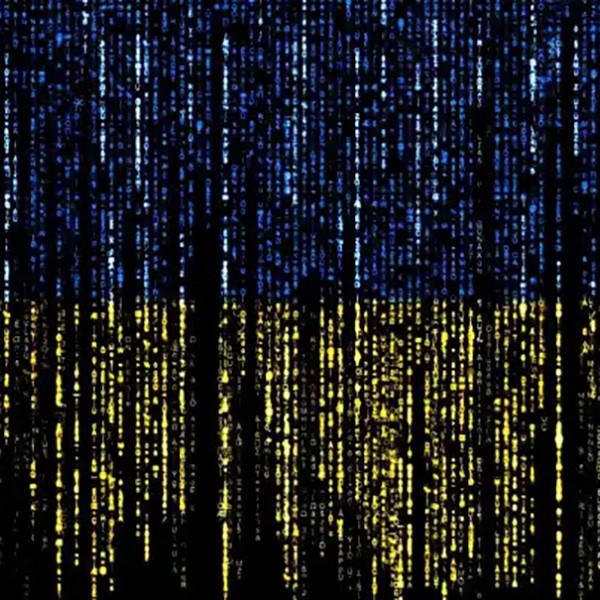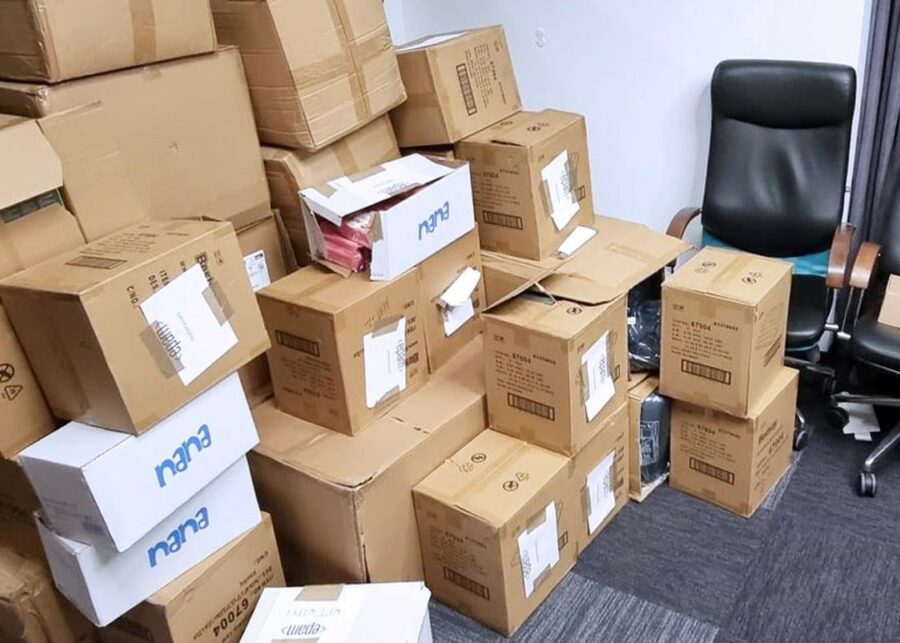
For more than a month, Ukrainian IT companies have been re-focusing their efforts on issues unrelated to their work, while at the same time maintaining their strong position on the cyber front. Not only do they publish guidelines on how to support Ukraine and urge their foreign counterparts to go to rallies, but they also set up shelters in their own offices, support employees and colleagues who join the ranks of Ukraine’s Armed Forces or territorial defense units, and raise funds for humanitarian aid.
Financial Support
According to the research conducted by the country’s largest IT community, the IT Ukraine Association, 78 of its Ukrainian member-companies raised 710 million hryvnias in the first ten days of the war. Part of the money was donated to the army, and the other part went to boost the Ukrainian economy and provide humanitarian aid.
In addition to centralized fundraising, the employees of the IT sector regularly make individual contributions to foundations that support Ukraine, as IT firms inform on their social media pages.
By donating 10 million hryvnias to Ukraine’s Red Cross, EPAM Ukraine helped to support IDPs and Ukrainian hospitals.

The developer of the M.E.Doc accounting program, Linkos Group, transferred 27 million hryvnias to the Armed Forces of Ukraine.
SoftServe has already donated 12 million hryvnias to support the Ukrainian army. Through the firm’s charity fund, “Open Eyes,” the essentials are purchased and transferred to the territorial defense units and the civilian population that remains in the country’s hot spots. These include ammunition, medicine, computer equipment, and so on.
On the fifth day of the war, digital product engineering company GlobalLogic Ukraine donated 1 million hryvnias to support the army. Afterwards, the company’s employees raised an additional 2.5 million hryvnias in a week’s time.

Sigma Software in Ukraine has contributed more than 9 million hryvnias to support the army.
MacPaw and Beetroot Ukraine have created their own funds. The raised money is donated to the needs of children, IDPs, territorial defense units, hospitals, Ukraine’s Armed Forces, etc.

On March 1, the Lviv IT Cluster urged Ukrainian IT firms to pay a single social contribution and a single tax as soon as possible to support the Ukrainian economy. EPAM Ukraine, SoftServe, N-iX, and other companies responded to the Tax Pay Forward initiative.
Offices-Shelters
Some Ukrainian IT companies that have offices in western Ukraine or in cities where there are no active hostilities provide temporary housing for their employees and their families. Today, instead of tables with computers, the co-working spaces accommodate people with sleeping bags.

For instance, Grid Dynamics in Ukraine has equipped and provided 100 sleeping accommodations in their Lviv office. The firm assists families in relocating to hotels, apartments, and private houses for free.
The employees of Brainstack, a Ukrainian digital application developer, live and work in the Ivano-Frankivsk office. The staff live as one big family and share the household responsibilities.

The Lviv and Kraków offices of Intellias Ukraine have equipped not only temporary shelters, but also rooms for kids (aged 3 to 12), where children can draw, read, watch cartoons, and play under the supervision of nannies. In Kraków, one of the meeting rooms now serves as a classroom for Ukrainian children who continue their distance education.

IT-specialists, Fighters, Volunteers
Mykhailo Fedorov, Ukraine’s Minister of Digital Transformation, has urged against conscripting IT specialists, citing their critical role in cyberspace. However, some specialists decided to join the Armed Forces or the territorial defense units from the first days of the war. A survey conducted by the IT Ukraine Association shows that 2% of the IT workers opted to defend Ukraine.
Companies support the decisions of their employees. They will be keeping their jobs and receiving 100% of their salaries. SoftServe, ELEKS, and Genesis provide their IT fighters with ammunition and other necessary supplies.

IT specialists are encouraged to volunteer, while companies are willing to consider a part-time work schedule. For example, SoftServe constantly incentivizes its employees to volunteer. They help with the purchase and transfer of humanitarian aid, the resettlement of colleagues, and other tasks that differ from their daily duties. On its social media pages, the company shares stories about its IT volunteers.
The DOU online media survey showed that 18% of respondents (out of 6,812 IT specialists) are volunteering.
Those who want to benefit the country through their professional skills and knowledge may join the ranks of the Ukrainian IT Army.

IT Army of Ukraine
On February 26th, the Ministry of Digital Transformation announced the creation of the IT Army of Ukraine. In order to join, the specialists need to subscribe to the IT Army’s Telegram channel and follow the mentioned guidelines. In the first days of the invasion, IT specialists hacked the websites of Russia’s government, president, and Federal Security Service, also known as the FSB (read also: “On the cyberfront of the Russian-Ukrainian War”).

More than 300,000 people are members of the community, which targets Russian government institutions, large corporations, telecom operators, banks, credit unions, digital signature services, and a number of media outlets on a daily basis.
The IT specialists’ responsibilities include conducting DDoS attacks and filing complaints against channels, bots, and social media pages that spread Russian propaganda. As of March 5th, the Ukrainian IT Army has attacked 660 Russian web services.
DDOS ATTACK
Targeting a computer system from several devices with the goal of disabling it and blocking access.Initiatives
During the war, the applications and initiatives of Ukrainian IT specialists are helping to save lives, protect users from hostile programs, calm and encourage.

The Ukrainian IT company, Poster POS, which automates services provided by catering establishments and shops around the world, has handicapped ten thousand Russian cafes and restaurants. Instead of a check management system, the waiters saw messages that called for an end to Russia’s war in Ukraine.
The Ministry of Digital Transformation, together with Ajax Systems and Stfalcon companies, created the “Air Alarm” app. On March 1, the application that notifies users of various types of alarms in a specific region became operational. It’s updated and improved constantly.

BetterMe, a healthy lifestyle startup, provided Ukrainians with free access to BetterMe Mental Health, so that users could support their mental health. Simultaneously, the company’s PR department redirected its efforts to fighting the information war, collaborating with international media and bloggers to share the truth about the war in Ukraine.

In their mobile application, Diia (Action) launched a game where you control a Bayraktar. The main goal of the game is to destroy as much enemy equipment as possible and protect your checkpoint. The Minister of Digital Transformation calls it a “digital sedative”.
BAYRAKTAR
A collective name for the unmanned combat aerial vehicles manufactured by the Turkish company Baykar Makina. The Ukrainian army is effectively using such aircraft to destroy Russian military equipment.Before leaving the Russian market, Ukrainian startup Reface sent push notifications to two million Russian accounts with calls to go to anti-war rallies.
The SpyBuster app, developed by MacPaw for macOS, not only warns of the presence of Russian and Belarusian programs on the computer, but also blocks potentially dangerous connections to Russian and Belarusian servers.

YouControl, a company that develops services based on open databases, has created an application for instant identity verification called “TyHto” (Who Are You). Thanks to this service, you can check whether a person has connections with criminal organizations, sabotage-reconnaissance groups, or occupiers.

